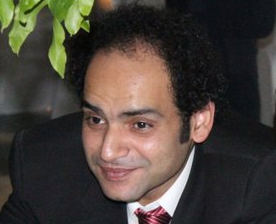By Khola Hasan
LONDON: The next London train was in ten minutes so I settled down on a bench on the windy platform and began to read my book; The Jews of Islam by Bernard Lewis promised to be a riveting read.
I had managed to read only a few pages when a man walking by said, “Who, may I ask, are the Jews of Islam?”
And so began a fascinating conversation which continued on a London tube for the next 20 minutes. The parents of my new acquaintance were Austro-Hungarian Jews who had fled Nazi persecution and taken refuge in Chile. We discussed various issues, including violence in the name of religion and the role of women in society, all very loudly over the rumblings and rattling of the Central Line.
This, for me — a Muslim woman living in UK — is multiculturalism at its best.
Countless numbers of people, on a daily basis, meeting, smiling, doing business with and communicating with perfect strangers. Whether they wear a headscarf or a yarmulke, a sari or a skirt, is immaterial. Our children learn about the words of Guru Nanak, Jesus and Buddha in school, and I hope they come away with a better understanding of the world than did their grandparents.
To show its confidence with multiculturalism, the English language has embraced new words with great ease, including those of Indian and Pakistani cuisine: chicken tikka (spiced baked chicken), rogan josh (a lamb curry) and saag paneer (a sautéed spinach and cheese dish). During the summer months we see increasing numbers of white British women wearing Pakistani embroidered tunics with long flowing sleeves and linen trousers, a beautiful testament to the absorption of other cultures into the British landscape.
Multiculturalism is not dead but is a living, organic entity that affects us on a daily basis. And this is why I find British Prime Minister David Cameron’s speech at the security conference in Munich so surprising. The timing of it was clearly offensive – the day of the far-right English Defence League’s biggest ever march through the streets of Luton, to protest at the so-called “Islamisation” of Britain – and not a mention of white fascism in his speech. And no mention yet of British politician Baroness Sayeeda Warsi’s comments on the rise in the acceptability of Islamophobia either. Instead, the speech contained a criticism of Muslims who live segregated lives, behave in ways that run counter to British values and hold extremist ideas.
As early as 1994, Roger Ballard, Director of the Centre for Applied South Asian Studies in the UK, described young, second-generation British Asians, as “cultural navigators”. He compared them to bi-linguists, where the speaker is able to switch languages with ease, depending on the context and the audience. In the same way, the new generation of British Asians were able to switch between Asian and English cultures, between different religious and cultural codes, with easy fluidity.
Today’s British Asians are just as comfortable in jeans and skirts as they are in shalwar kameez (traditional South Asian clothing); in eating chips with a fork or biryani (a rice and meat dish) with their fingers. They can swear equally well in Punjabi as they can in English, and can dance to pop as well as to bhangra music.
Clearly there are issues of extremism and radicalization that we need to discuss. But the Prime Minister made the mistake of confusing two completely separate issues and treating them as one. Self-segregation is a clear problem due to a number of factors, including the migration of long-term residents out of neighborhoods as they become racially and ethnically mixed, poverty, racism, high unemployment and so forth.
Extremist rhetoric and the radicalization of young Muslims is an entirely different issue; it is often not due to a dislike of British values per se or to a lack of a clear British identity, but to British foreign policies throughout history which have resulted in innocent civilians being killed in certain Muslim-majority countries as collateral damage. Radical Muslim speakers put emphasis not on integration or a British way of life, but on illegal wars and the death of civilians in the Muslim world. These issues need to be brought out in the open instead of being ignored and shifting the blame elsewhere.
Muslims in Britain enjoy and contribute to the wealth and success of this country. They pay their taxes, are active in the medical and legal professions, dream of playing cricket for England’s team, worry about their children’s education, and generally live happy and productive lives. Fascists and extremists rely on a fear of the other to promote hatred. This is why we need more multiculturalism, not less, to fight stereotypes. Perhaps more loud conversations on the train with strangers will help combat this fear of the other.
Khola Hasan is a writer and broadcaster, specialising in human rights and women’s rights in Islam, and Director of Albatross Consultancy Ltd. This article was written for the Common Ground News Service (CGNews).

